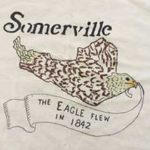
Eagle Feathers #225 – Poet’s Perch
By Bob (Monty) Doherty
In the mid nineteenth century, John Townsend Trowbridge’s name on a story was said to be a near guarantee of success. He was a writer of the first degree, having scribed over sixty volumes and abundant publications, many of them adventure stories for boys. Trowbridge’s papers are housed at the Boston Public Library and Harvard University. His admirers believed that nothing written by his pen failed.
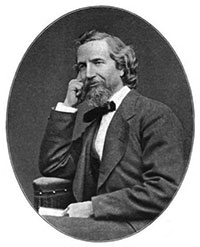
He was a school teacher, newspaper and journal editor, novelist and poet. In 1857 he edited the first edition of the Atlantic Monthly Magazine and continued to do so for eleven years. He knew many famous literary writers including Samuel Clemens, pen named Mark Twain, whom he worked with at the Atlantic Monthly. Some said that Mark Twain was more popular because he had better publicists than Trowbridge.
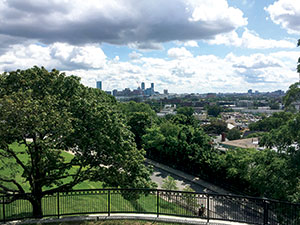
Trowbridge drew much of his historical writing inspiration from his sweeping birds-eye view of greater Boston from Prospect Hill. His friends came to his residence on the historic Hill to express their thoughts and gather his. Trowbridge was an abolitionist and was known as a spokesman for the northeastern Yankee viewpoint. For years, the Somerville resident attracted a list of contemporaries to his door. Some of his acquaintances included Civil War writers:
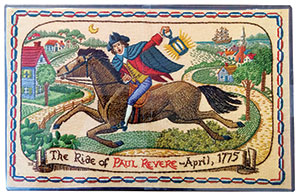
Author: Henry Wadsworth Longfellow; Publication: Paul Revere’s Ride (poem); Published in: The Atlantic Monthly in 1861.
Author: Harriet Beecher Stowe; Publication: Uncle Tom’s Cabin (novel); Published in: The National Era in 1852.
Author: Walt Whitman; Publication: O Captain! My Captain! (poem); Published in: The Saturday Press in 1865.
Along with Trowbridge, these three authors were all abolitionists. Longfellow’s poem, Paul Revere’s Ride, called for the country to dissolve tensions and avoid civil war. Stow’s book, Uncle Tom’s Cabin, called for ending slavery and Whitman’s poem, O Captain! My Captain!, mourned the assassination of Abraham Lincoln who emancipated America’s slaves. Lincoln’s death marked the century. Somerville’s Lincoln Avenue, Lincoln Street, Lincoln Parkway, Lincoln Place and the frieze of Lincoln’s Gettysburg Address in City Hall honor this great man.
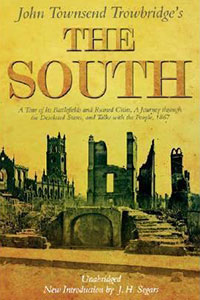
After the war from 1865 to 1866, Trowbridge was asked to take on the awe-inspiring journey of chronicling the unconstructed South and documenting his findings. He was one of the very few journalists who covered cities, towns, battle grounds, and landscapes. He talked to the young and old of both genders, refugees, soldiers, citizens, free slaves and the displaced. His over 150-year-old journal was republished as John Townsend Trowbridge’s The South.













Reader Comments